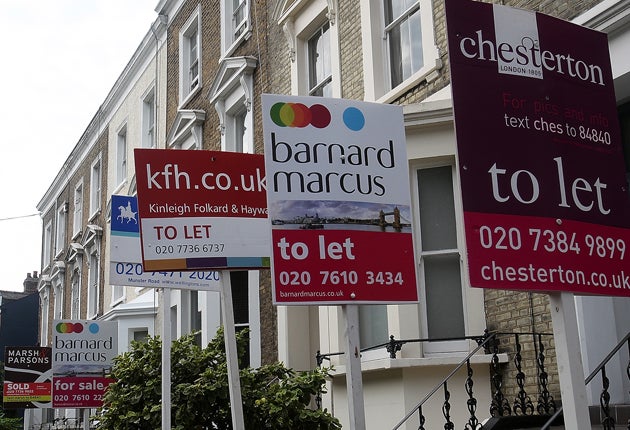Consumer rights: 'Negative equity has trapped us in our home'
With a baby on the way, a couple needs more space but can't afford to sell...And a flat owner runs into problems over repairs to the building's roof

Your support helps us to tell the story
From reproductive rights to climate change to Big Tech, The Independent is on the ground when the story is developing. Whether it's investigating the financials of Elon Musk's pro-Trump PAC or producing our latest documentary, 'The A Word', which shines a light on the American women fighting for reproductive rights, we know how important it is to parse out the facts from the messaging.
At such a critical moment in US history, we need reporters on the ground. Your donation allows us to keep sending journalists to speak to both sides of the story.
The Independent is trusted by Americans across the entire political spectrum. And unlike many other quality news outlets, we choose not to lock Americans out of our reporting and analysis with paywalls. We believe quality journalism should be available to everyone, paid for by those who can afford it.
Your support makes all the difference.Three years ago we bought our house for £200,000 and paid a small deposit.
Three estate agents have now valued it at between £160,000 and £170,000. That's less than we borrowed and less than we still owe. We need to move to a bigger place because we're expecting our first baby but we'll have to use our savings to clear the debt. The only good news is that we have parents nearby to look after the baby so we'll both be able to work. Do we really have no choice but to stay put?
RG, Manchester
You're in negative equity and not alone. Contact your lender to find out whether it has any schemes that can help you move on. Be careful as this can be expensive, with higher interest rates, fees and bigger repayments, and you'll have estate agent's and solicitor's charges. Plus, babies push up household expenses more than most people allow for – so now's not the time to leave yourself with bigger mortgage payments.
If there's no help forthcoming, check letting agents and work out whether you could afford to sell, clear the debt with your savings and rent somewhere a bit bigger.
Another option might be to let your house. You'll need your lender's permission but you might find you can rent a bigger place for less than yours is worth on the rental market. Again, be careful. Some lenders charge a higher interest rate on your existing mortgage if you let the property. Don't forget to check with your buildings and contents insurer, and to account for letting-agent fees. If the tenants leave you're still liable to pay the mortgage and any repairs are your responsibility too.
A lot of people are extending. Some extensions don't need planning permission and if you have savings that might be an alternative to moving.
If none of these options works for you, sit tight. The National Housing Federation forecast last week that house prices will fall by 3 per cent in 2011 before rising again, and that it will take about four years before prices recover to where homeowners in negative equity are back in the black.
I own a top-floor flat in a block with three other owners. Between us we bought the freehold and we are the management company. I live abroad and my flat has been rented out for several years but I want to sell, so I gave my tenants notice and put the place on the market three months ago. It hasn't sold and now there seems to be damp, and roof problems. My builder's estimate isn't too big but scaffolding will cost quite a bit. All the other owners should contribute but they are not returning my calls or notes. If there's a dispute about money for the work it will hold up my sale even further. What should I do?
HP, London
The first thing to do is to check if you've been paying into a sinking fund. This collects money towards future repairs and means that, when a big bill comes in, the amount each flat owner has to find is affordable. You need to contact the management company secretary, explain the problem and discuss next steps.
If there is no sinking fund it's a different ball game. The management firm – all the flat owners – owns the freehold and is responsible for all external repairs. The leaseholders – each flat owner is a leaseholder – must pay for those repairs. The stumbling block comes when leaseholders feel they're being asked to pay for repairs that won't benefit them. You need to get everyone together to talk it over. I'd suggest you go ahead and get three estimates for repairs and scaffolding, then when the secretary gets a date that suits everyone you'll have the details. Ask each roofer who gives you a quote to outline the work that needs doing and the likely consequences of not doing it now.
If the management company won't pay, you'll have to decide whether to drop your price to get a buyer. The only other option you'd have is to pay for the work yourself – but you might still need the agreement of other owners if the scaffolding has to be in someone's garden.
Above all, try not to fall out with your neighbours. Buyers will want to know of any disputes – and these can really put a buyer off.
Do you have a consumer complaint?
Write to Julian Knight at the Independent on Sunday, 2 Derry Street, London W85HF
j.knight@independent.co.uk
Join our commenting forum
Join thought-provoking conversations, follow other Independent readers and see their replies
Comments